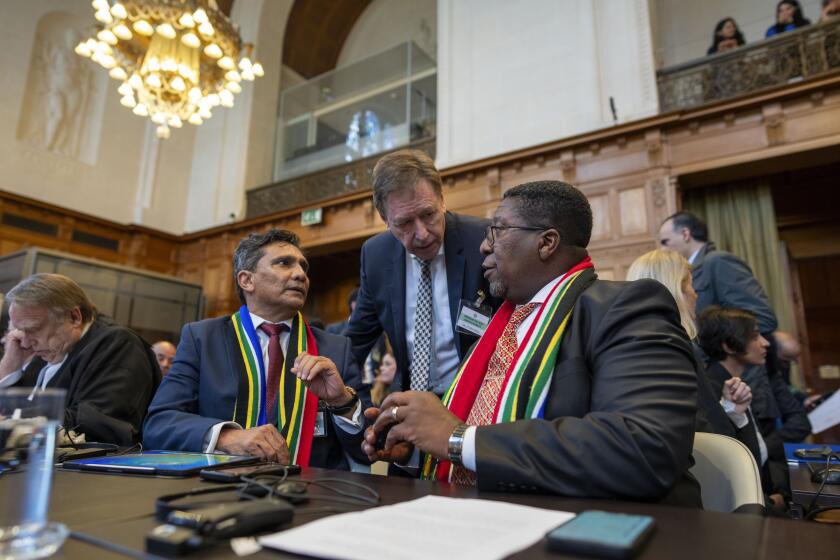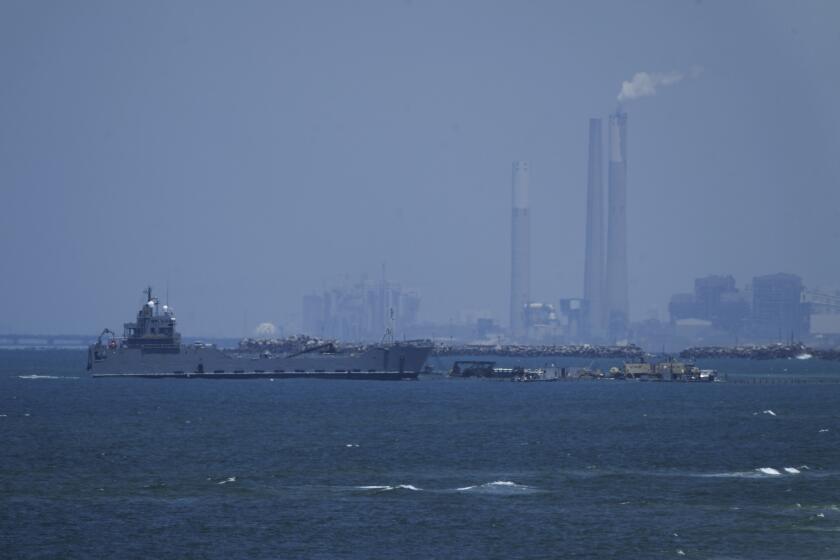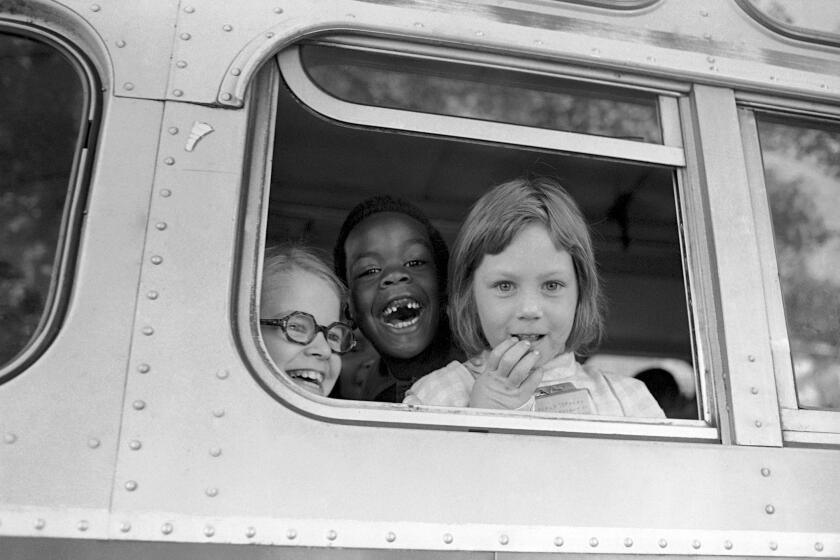Shanghai Wrapped in Security Blanket
Officials weren’t exaggerating when they promised to “net the Earth and the sky” to keep this city safe for APEC.
As the Asia-Pacific Economic Cooperation summit kicked into high gear Saturday, the sea of humanity that is the trademark of the most populous nation on Earth suddenly vanished.
Many of the city’s 13 million residents stayed home on mandatory holidays, afraid to go out or deal with the maze of road closures. Businesses shut down, and those that haven’t are empty. More police officers than pedestrians prowl the deserted streets.
Around the downtown hotels hosting the foreign VIPs, roadblocks are enforced by uniformed men who line the streets like trees, breaking out of formation only to holler at pedestrians straying too close to the police line.
Taxi drivers have no place to go, and passengers don’t know where to find them. Subway trains don’t stop where they’re supposed to, and buses don’t go where they should.
An uncharacteristic silence has fallen over this otherwise bustling metropolis as residents cope, the best they can, with the disruptions.
“Foot traffic is critical to our business. It’s the weekend--it’s supposed to be packed with people. But today it’s worse than any weekday,” says Zhang Weimin, a clerk at a deserted sweater shop on Nanjing Road, a golden location for tourists and shoppers.
Zhang lives on the other side of the river, near the conference center where President Bush and other Pacific Rim leaders met Saturday to discuss trade liberalization and the war on terrorism. As the city’s security blanket intensified last week, so did Zhang’s frustrations.
It took him an extra hour to get to work because the bus and subways he needed weren’t running. He had to rise extra early just to catch an out-of-the-way ferry in this seaside city and then transfer from bus to bus.
“I don’t even know how I’ll get home tonight,” Zhang says.
Even children’s lives are affected. Youngsters had to attend school for nine days straight to make up for the time lost during last week’s state-mandated vacation.
“It was really tough on the kids,” says Huang Xiuzhen, another shopkeeper. “But we have to make personal sacrifices for the good of the country.”
Down the street, a single-screen movie theater is showing “The Mummy Returns.” But the house is empty.
“Business was not great before,” manager Kang Lu says. “Now it’s terrible.”
Up the road, staffers at a wedding photo studio are shooting the breeze. They had thought that the mandated holidays would bring in more business. But since the roads have been closed, residents have not been leaving their homes if they could help it.
“Normally, we’d make at least $800 a day,” one clerk says. “Today we took in maybe $70.”
Across the street, a shopkeeper is puffing a cigarette in front of a display of ceramic blue-and-white vases, tea sets and laughing Buddhas. APEC brought thousands of foreigners to the city, but he hasn’t seen a single one in his store. “Maybe it’s the language barrier,” he says.
Even residential neighborhoods are crawling with police. Some of them kill time by chatting with idle shopkeepers or napping on chairs.
Across the river, near the convention center, it feels even more like a ghost town. The wide boulevard of China’s new Wall Street has been emptied of people and traffic. The tunnel leading to the area is reserved for official use only.
Entire stretches of the elevated highway are empty except for guards who have sealed off the onramps with spikes on the pavement.
Closed schools and neighborhood alleys have been transformed into temporary military barracks.
“I’m afraid to go anywhere without my identity papers,” resident Wang Weili says.
Behind a locked glass door, Liu Jiangwei, a cook, is staring into the deserted street. His boss asked him to mind the shop even though the city had ordered it closed. Liu is waiting for a friend to visit. It’s midafternoon, and the friend still isn’t here.
“Probably stuck in traffic,” Liu says.
More to Read
Start your day right
Sign up for Essential California for news, features and recommendations from the L.A. Times and beyond in your inbox six days a week.
You may occasionally receive promotional content from the Los Angeles Times.






